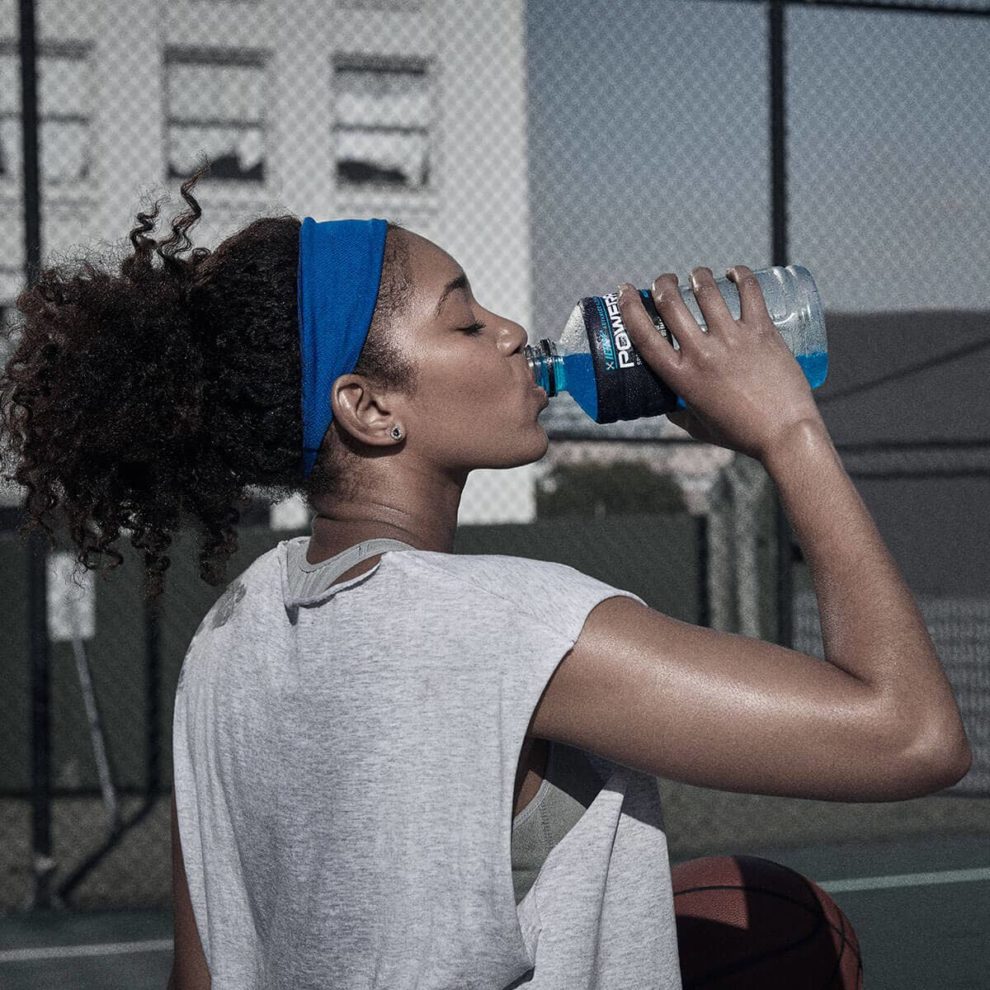Powerade is a sports drink consumed by many athletes and exercisers to replenish fluids and electrolytes lost during exercise. It is a popular choice among people engaged in intense physical activity because it contains important nutrients that help improve performance and reduce fatigue. However, some people wonder whether Powerade contains caffeine or not. This blog post will reveal the answer to that question and explore other aspects of the drink.
Table of Contents
What is Powerade?
Powerade is a sports drink first introduced by the Coca-Cola Company in 1988. It is marketed as a drink that helps replenish fluids, electrolytes, and carbohydrates lost during exercise. The drink comes in a variety of flavors including fruit punch, grape, lemon-lime, mountain berry blast, and mixed berry.
Does Powerade contain caffeine?
No, Powerade does not contain caffeine. According to the nutrition label on the bottle, a 20-ounce serving of Powerade contains 0 milligrams of caffeine. That’s why it’s a great choice for people who want to avoid caffeine but still need a drink to replace fluids and electrolytes lost during exercise.
Why do some people prefer decaffeinated drinks?
Some people prefer decaffeinated drinks for a number of reasons, including:
- Caffeine sensitivity: Some people are sensitive to caffeine and may experience side effects such as anxiety, nervousness, and insomnia when they consume caffeinated beverages.
- Medical conditions: People with certain medical conditions, such as high blood pressure, heart disease, and diabetes, may be asked to limit their caffeine intake.
- Personal preference: Some people just don’t like the taste or effects of caffeine and want to avoid it altogether.
Other Powerade ingredients
In addition to electrolytes and carbohydrates, Powerade contains other ingredients that give the drink its nutritional value. These include:
- Water: Powerade’s main ingredient is water, which helps hydrate the body and replace fluids lost during exercise.
- High fructose corn syrup: Powerade contains high fructose corn syrup, which provides carbohydrates and energy to the body.
- Citric Acid: Citric acid is added to Powerade to give it a tangy taste and acts as a preservative.
- Natural and artificial flavors: Powerade contains natural and artificial flavors that give it a distinct taste and aroma.
- Sodium and Potassium: Powerade contains sodium and potassium, which are essential electrolytes that help regulate fluid balance in the body.
- Food coloring: Powerade contains food colorings such as Blue 1 and Red 40, which give the drink its vibrant colors.
How does Powerade compare to other sports drinks?
Powerade is one of the most popular sports drinks on the market, but it’s not the only one. Other sports drinks such as Gatorade also offer similar benefits to athletes and exercisers. However, there are some differences between the two drinks.
- Electrolyte content:
Powerade and Gatorade both contain important electrolytes such as sodium and potassium, but the exact amounts may vary. For example, a 20-ounce serving of Powerade contains 150 milligrams of sodium and 35 milligrams of potassium, while the same serving of Gatorade contains 270 milligrams of sodium and 75 milligrams of potassium.
- Carbohydrate Content:
Powerade and Gatorade both contain carbohydrates, but the amount and type of carbohydrates can vary. For example, a 20-ounce serving of Powerade contains 35 grams of carbohydrates in the form of high-fructose corn syrup, while the same serving of Gatorade contains 36 grams of carbohydrates in the form of sucrose and dextrose.
- Flavor Options:
Powerade and Gatorade offer a variety of flavors, but the specific flavors available may vary. For example, Powerade offers flavors like Mountain Berry Blast and White Cherry, while Gatorade offers flavors like Cool Blue and Fierce Grape.
Ultimately, the choice between Powerade and Gatorade (or any other sports drink) comes down to personal preference and individual nutritional needs. Some people may prefer one brand over another based on taste or nutritional content, while others may switch between the two based on their activity level and goals.
Conclusion
Powerade is a popular sports drink that does not contain caffeine. It’s a great choice for people who want to replenish fluids and electrolytes lost during exercise without consuming caffeine. Powerade also contains other important nutrients such as carbohydrates and electrolytes that help improve athletic performance and reduce fatigue. While there are other sports drinks on the market, Powerade is a reliable choice that athletes and sportspeople have trusted for years.
FAQ’s
Q. Is Powerade a healthy choice for athletes?
Powerade can be a healthy choice for athletes who need to replenish fluids and electrolytes lost during exercise. It contains important nutrients such as carbohydrates and electrolytes that help improve athletic performance and reduce fatigue. However, like any beverage, it should be consumed in moderation and as part of a balanced diet.
Q. What are the benefits of using Powerade during exercise?
Using Powerade during exercise can help replenish fluids, electrolytes, and carbohydrates lost through sweat. It can help improve athletic performance and reduce fatigue. In addition, Powerade contains sodium and potassium, which are essential electrolytes that help regulate fluid balance in the body.
Q. Can Powerade be used as a water substitute?
Although Powerade can help replace fluids lost during exercise, it should not be used as a substitute for water. Water is still the best drink for staying hydrated, and drinking enough water throughout the day is important to stay healthy.
Q. Does Powerade have side effects?
Powerade usually has no side effects when used in moderation. However, some people may experience upset stomachs or other digestive problems if they consume too much of the drink. People who are sensitive to caffeine should also avoid other caffeinated beverages.
Q. Is Powerade suitable for children?
Powerade is not recommended for children under 12 years of age. Children should drink water or other non-caffeinated beverages to stay hydrated during physical activity. If a child needs to replenish electrolytes lost during exercise, there are electrolyte solutions specifically for children.




Add Comment